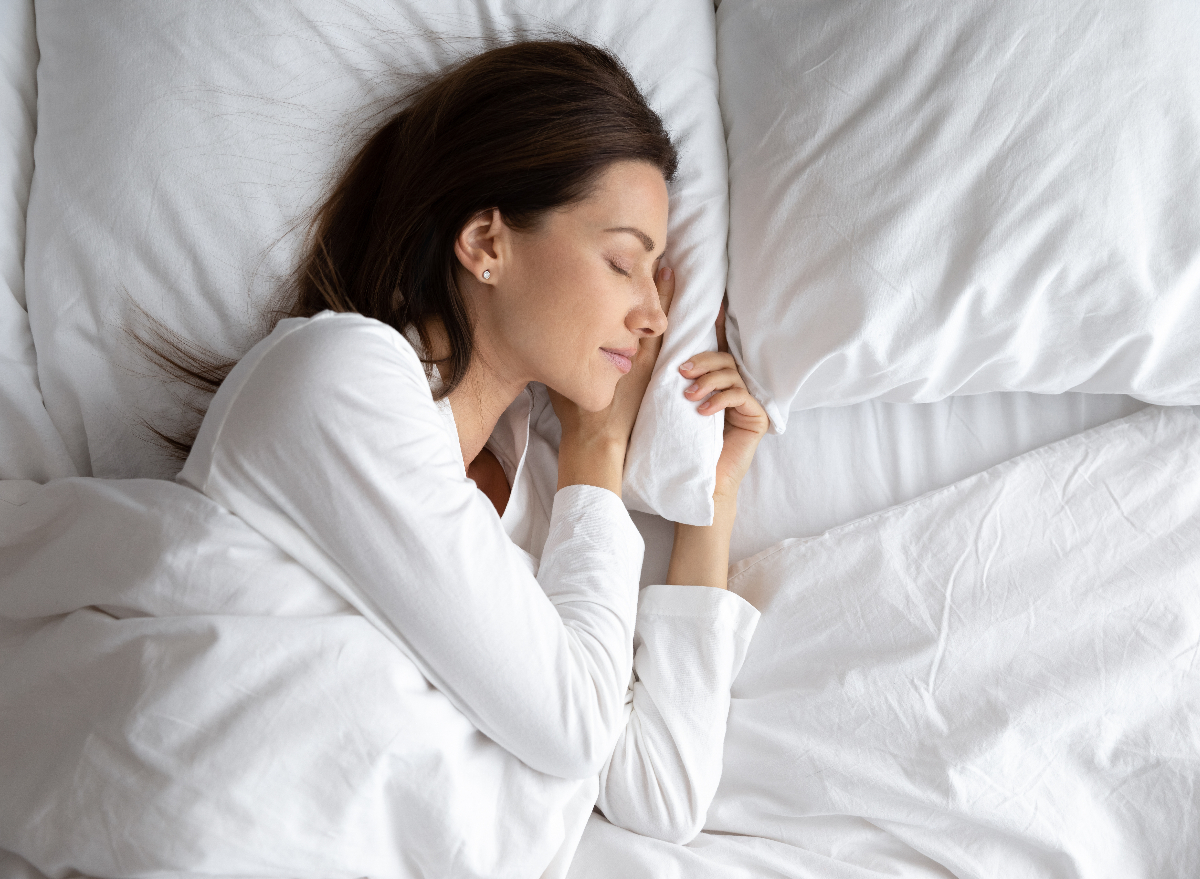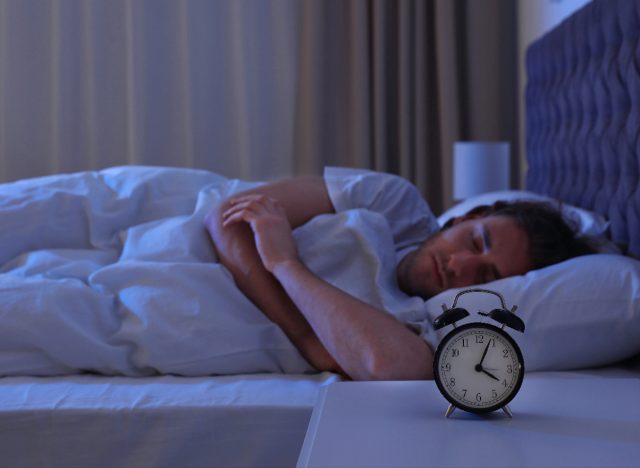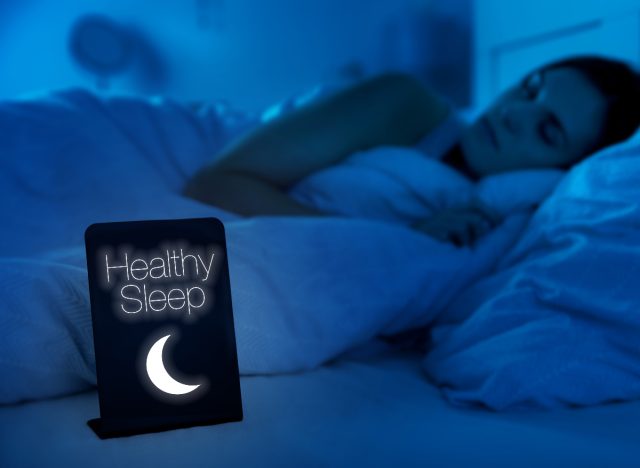These Sleep Habits Can Help You Live 5 Years Longer, New Study Says

Did you know that following just the right consistent sleep routine can help you extend your life? According to new research presented via the American College of Cardiology, sticking to a few solid sleep habits tacked on close to 2.5 years to a woman's lifespan and 4.7 years to a man's lifespan, CNN reports.
So slip into your coziest PJs, snuggle up under the covers, and start following these healthy sleep habits ASAP to improve your overall wellness and life. Keep reading to learn more, and next, don't miss Is Junk Sleep the Reason You're Waking up Tired Every Day?
The research:

The researchers collected data from over 172,000 males and females who were involved in the National Health Interview Survey from 2013 to 2018, according to the press release. Fifty-four percent of the participants were female.
They observed and evaluated five sleep quality contributors, including:
- Getting the ideal amount of sleep from seven to eight hours each night
- Having a hard time getting to sleep for a maximum of two nights per week
- Difficulty staying in a restful state of sleep for a maximum of two nights per week
- Not taking medication to aid sleep
- Waking up feeling rested for a minimum of five days each week
Each category was rated with a points system indicating the best quality of sleep, with either zero or one point for each.
The participants who experienced all five of the sleep categories—amounting to a total score of five—revealed a much higher life expectancy, including 4.7 more years for men and 2.4 more years for women. This was compared to individuals who only experienced zero or one of the "favorable elements" of good-quality sleep contributors.
Good sleep habits will actually help you live longer.

According to the study, getting a solid seven to eight hours of shuteye every night is essential to your health. Sufficient sleep is a major key to your body's recovery process. Plus, it helps you successfully perform tasks the next day, the Sleep Foundation explains.
The unfortunate fact is that many individuals deal with sleep issues that lead to less-than-ideal sleep quality. Surprisingly, nearly half of Americans feel tired during daytime hours, from three to seven days a week, the Sleep Foundation reports. In addition, approximately 35% of adults in the U.S. reveal they get fewer than seven hours of sleep, on average, each night.
Another critical aspect of a good night's sleep is inconsistency. Getting up in the middle of the night or finding it difficult to snooze into dreamland compromise the benefit of consistent sleep. The study reveals this should not happen more than two times a week. Alas, uninterrupted Z's can be challenging. According to the American Sleep Apnea Association, sleep issues impact a whopping 50 to 70 million Americans, with one of the most typical sleep disorders being insomnia. Sleep apnea is another incredibly common sleep issue.
In addition, for a minimum of five days a week, it's important to actually feel like you're sufficiently rested. And last but not least, you shouldn't take any sleep medications in order to achieve good sleep.
The benefit of solid sleep can't be stressed enough. After all, research says sound sleep habits can even extend your life!
"If people have all these ideal sleep behaviors, they are more likely to live longer. If we can improve sleep overall, and identifying sleep disorders is especially important, we may be able to prevent some of this premature mortality," study co-author Dr. Frank Qian, a clinical fellow in medicine at Harvard Medical School and internal medicine resident physician at Beth Israel Deaconess Medical Center in Boston, said in a press release.









